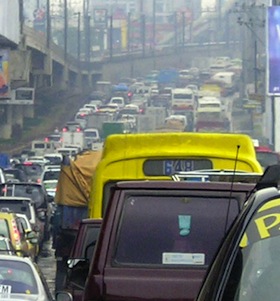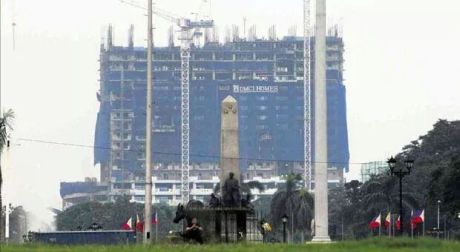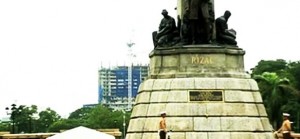You gotta give credit to those who cheer on the inroads technology is relentlessly making into people’s personal lives. Technology, they say, is “making lives better” by “empowering” ordinary people to take greater “control over their lives”. The nebulous banter seems to resonate with consumers who remain wide-eyed in anticipation for the coming of the next must-have. And the next one. And the next one after that.
As a TIME columnist quipped recently, in “the new economy” you either drive the market or are driven by it. The consumer economy being what it is, we know that, indeed, the world is filled with driven people. Apple is currently swamped with a record 4 million — and rising — pre-orders for Its Coolness, the iPhone 6 and 6 Plus. That’s of course not surprising. Cool marketing is at the heart of Apple’s corporate brilliance. Its products are both cool and actually brilliant, so much so that the company has hardly ever found a need to discount even its older products just to clear inventory. In that regard, Apple remains the undisputed tech hit maker.
But what really piqued the interests of tech watchers is the more iffy of the products Apple is pitching this year — the Apple Watch. Though, itself an excellent product (notwithstanding its rather unimpressive battery life), observers have pointed out that the market it is entering is already awash in similar smartwatches. Indeed, not just Apple but just about every tech company out there is scrambling to get into the wearables market. The thinking, as it has emerged now, is that the next marketing frontier for those out to make big bucks out of tech is customer intimacy.
| SUPPORT INDEPENDENT SOCIAL COMMENTARY! Subscribe to our Substack community GRP Insider to receive by email our in-depth free weekly newsletter. Subscribe to our Substack newsletter, GRP Insider! Learn more |

Then step back from that scenario and ask the question again.
How is all that going to make my life better?
The answer, it seems, is really not that straightforward. Will a to-the-minute profile of my vital signs really make my life better? How often would we really need to consult a data bank full of the minutiae of how our vital cycles and fluids ebb and flow through the day over the years?
More imporantly:
Would life really improve with such intimate data in the hands of the likes of Google and Apple?
Think of those annoying calls from marketers we get every now and then. Recall how we wonder when stuck in a conversation with them: How did my name and phone number end up in this bozo’s database? And here we are ready to embrace the technological age of “wearables”.
Now zoom out of that world of quantum techno-consumerism and up to the macro world of wide-area social networking. The assertions being made by tech mavens and marketers alike are the same. We are facing a golden age of “better lives” and more “empowered” lifestyles thanks to all that “social” technology. Social media, they continue, will make us more focused on achieving some nebulous form of “social good”. In short, technology will makes us and all the goodness we are capable of more “social”. Most interesting of all, we are seeing the dawn of an age of tighter “collaboration” with government to achieve that end!
That remains to be seen.
For now, social media seems to serve the public best by protecting them against the government. We can take the hint from the most recent high-profile social media “success story”, the busting of the entire La Loma (Quezon City) police precinct as a result of a photo of an on-going carjacking that went viral over the Net.

So much for collaboration with state authorities. It was more like an adversarial relationship that was created. A deeply-ingrained suspicion of the police all but validated by a fortuitous tap on a smartphone by a Netizen. The only collaboration we may be seeing soon is not one between the state and its citizens but more of one between the state and Big Tech. Scandals reported in the last several months involving the US government’s use of data collected through tech companies could confirm this trend. More recently, Yahoo! had reportedly confirmed aggressive bullying by the US government to comply with the PRISM program of the administration of George W Bush which conscripted Yahoo! as well as other big tech firms like Apple, Facebook, Microsoft and Google in a shadowy “semi-automated data request system”.
Closer to home, there is also evidence that the Philippine government is not above mounting arm-twisting tactics to get its way with a tech company. Back in 2010, the government of President Benigno Simeon ‘BS’ Aquino III allegedly hijacked a Facebook page with millions of subscribers that was used by his own supporters during the 2009-2010 election campaign.
And in the private sector front, there are lots of examples of activists and lobbyists engaged in the furthering and propagation of a potpourri of private social and political agendas. The empowering tools of their dubious trade? You guessed it: social media. The “Internet”, lauded by the Net “elite”, as “the backbone of the knowledge economy” has become a pipeline of a lot more disinformation than information. An erstwhile noble “cause” championed by prominent Filipino Netizens to save the tourist vista of the iconic Rizal Monument situated in the Philippines’ Kilometro Uno has been tainted by allegations that its centrepiece propaganda photo dubbed Ang Pambansang Photobomb (“The National Photo Bomb”) depicting the monument to national hero Jose Rizal backdropped by the unsightly construction site of the Torre de Manila condominium building is actually a photoshopped image.

Social good? Or social deceit? To be fair, time will tell and the truth will come out facilitated by social media as well. In the mean time, personal reputations are at stake in this instance — the social media celebs who are this campaign’s proponents and no less than a Philippine Senator, Pia Cayetano, who launched a fiesta Senate inquiry on the matter. Just like the happy ending of the Edsa “gun poking incident” described earlier the true heroes and victims eventually emerge from the woodwork. And that is the sort of “social good” we all hope for.

Like every other technology that came before it, social media, all these mobile and wearable devices, and the pipes that connect all of these together are really all just tools that should be put to the service of human beings and not be made out to be ends in themselves.
benign0 is the Webmaster of GetRealPhilippines.com.
Technology is evolving faster and faster with so much sophistication. Unfortunately, the Philippines is left far behind by countries with advanced technology. When you Blog about advanced technology to some Filipinos:it seems that you are a man from the Planet Mars.
Advances of technology in the field of :medicine; meteorology; electronics, Physics, etc…are already coming. The gadgets of the TV series, “Star Trek” are somewhat getting to be realized…
I hope that all our advances in technology will be used for good, and not for evil…
Otherwise, I will say: “Beam me up, Scotty”…”there is no intelligence on this Planet Earth”…
There seems to be an aversion to labor-saving appliances like laundry machines and vacuum cleaners among poor Filipinos, who forsake the technologies that would make their lives easier and save time in their (supposedly) busy schedules but still find the cash to splash on smartphones and tablets because those are fun and status symbols and that’s what matters.
technology can affect you positively in subtle ways. Polio is now extinct in the philippines due to vaccination. Many diseases which in olden times was a death sentence can now be cured or controlled. Without scientists like in IRRI in los banos its quite possible that there would be widespread famine now in rice eating regions. With the internet even a child in a far flung barrio can access news and information which used to be controlled by government or only available to the rich. Satellites can tell people like farmers when a storm is coming. With the internet even one ordinary person can complain about big or small things and be heard all over the world
technology can cause problems yes but the old adage count your blessings still applies
“Like every other technology that came before it, social media, all these mobile and wearable devices, and the pipes that connect all of these together are really all just tools that should be put to the service of human beings and not be made out to be ends in themselves.”
nothing wrong about that statement. I agree.
I agree. What you cited were the outcomes of technological development. I was really talking more about the question around the output/value of mere technology use.